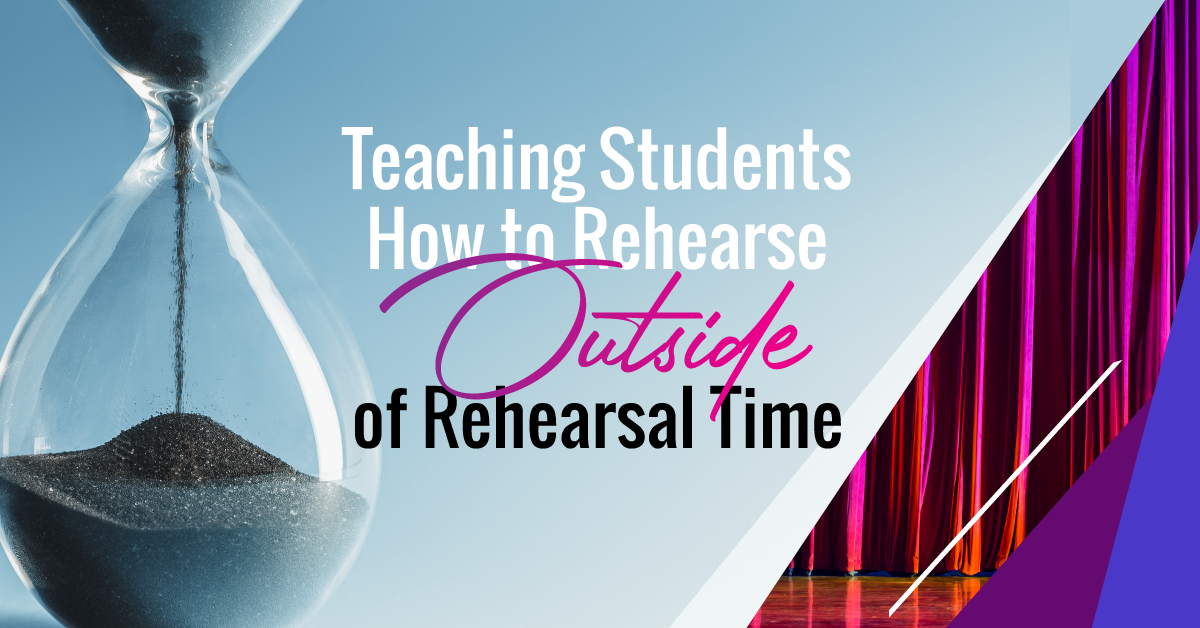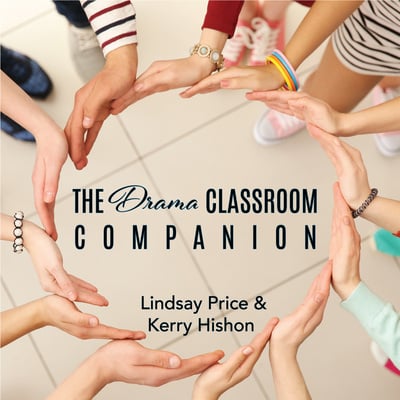Teaching Students How to Rehearse Outside of Rehearsal Time
One of the biggest predictors of a student’s success in the drama classroom and their school productions is whether or not they’re putting in the work on their own outside of the in-school rehearsal time. Whether they like it or not, students cannot expect to only practice during rehearsals and be any good. They have to practice on their own, outside of rehearsals, or they just won’t get it.
It is so evident to teachers and artistic staff which students have been putting in the work and which ones are just skimming by. Students who rehearse on their own are more calm and confident, make stronger acting choices, and are less stressed. It’s not easy to balance school, rehearsals, and life outside of the theatre, but it’s necessary for students who want to give their best performances.
However, some students don’t know how to rehearse on their own. They might read over their lines at home but not know what else to do. Here are some tips you can share with your students to help them make the most of their out-of-rehearsal practice time.
1. Get specific.
In our last article, Teaching Students How to Rehearse in the Drama Classroom, we talked about giving students a specific focus to help them use their class time more efficiently. You can also use this to help students rehearse on their own time. At the end of each rehearsal, tell your students what you’d like them to focus on between then and your next rehearsal. You might ask students to get fully off-book for a certain scene, review a dance at least five times, or complete a character profile.
Be as specific as possible. Maybe they need to work on projecting their voices and you’d like them to practice this for a minimum of 20 minutes a day between now and the next rehearsal. This will give students a better idea of your expectations of them and their commitment to the project.
2. Schedule practice time.
In Theatrical Time Management for Students, we talk about students using their planner to write down all their commitments, as well as scheduling time for homework, chores, and social events. While they’re at it, have them schedule at-home practice time as well. Specifically allotting time to practice helps students to plan ahead, and makes that time a commitment rather than just a nice idea.
3. When they’re not called to rehearsal… they’re still called.
A good director will treat students’ time with respect and only call them to rehearsal when they’re needed. But since that time is already meant to be booked in students’ schedules for rehearsals, if they’re not called, encourage them to use that time to rehearse and review on their own. It may motivate students if they consider that not practicing on their own during rehearsals that they aren’t called to actually causes them to lose rehearsal time.
4. When possible, have additional resources available.
Encourage students to make choreography videos or harmony recordings, if you don’t already. If there are resources you’ve used for your own research, you might encourage your students to examine them too. (For example, when I was directing Disney’s Descendants: The Musical, I borrowed the Descendants graphic novels from the library and let my students read them during breaks.) You may also want to have students fill out an out-of-rehearsal practice log (download our example below). It gives space for students to write down the dates they rehearsed, what they rehearsed, how long they rehearsed for, and any successes, challenges, thoughts, or questions that arose during their work.
If availability and supervision allows, you might also consider booking an empty classroom for students to rehearse. Some students may find it difficult to rehearse at home for various reasons.
5. Check in with your students.
Use the following questions to check in with your students, either at the beginning or end of rehearsal, or as written reflections or journal prompts:
- Do you think you rehearse enough outside of rehearsal time? Why or why not?
- Rate your “outside of rehearsal” time from 1 to 5, 1 being no rehearsal at all and 5 being daily rehearsal. Was it better or worse than last week? Why?
- Why is it important to rehearse outside of rehearsal time?
- Why can actors not just rehearse during rehearsal time and be good?
Additional Resources:
- 5 Ways for Students to Practice Outside of Rehearsal
- Practice How You’d Like to Perform
- 9 Techniques for Students to Memorize Their Lines
Related Articles
The Drama Classroom Companion
by Lindsay Price & Kerry Hishon
The Drama Classroom Companion is filled with articles and exercises to build the skills needed for theatrical performance as well as real world skills like creative thinking, critical thinking, collaboration, and communication.
The Rehearsal Companion
by Kerry Hishon
You’ve chosen the play, paid the royalties, done the script analysis, held your auditions, and cast the show. Tomorrow is the first rehearsal. Are you ready? Really ready? The Rehearsal Companion can help!





